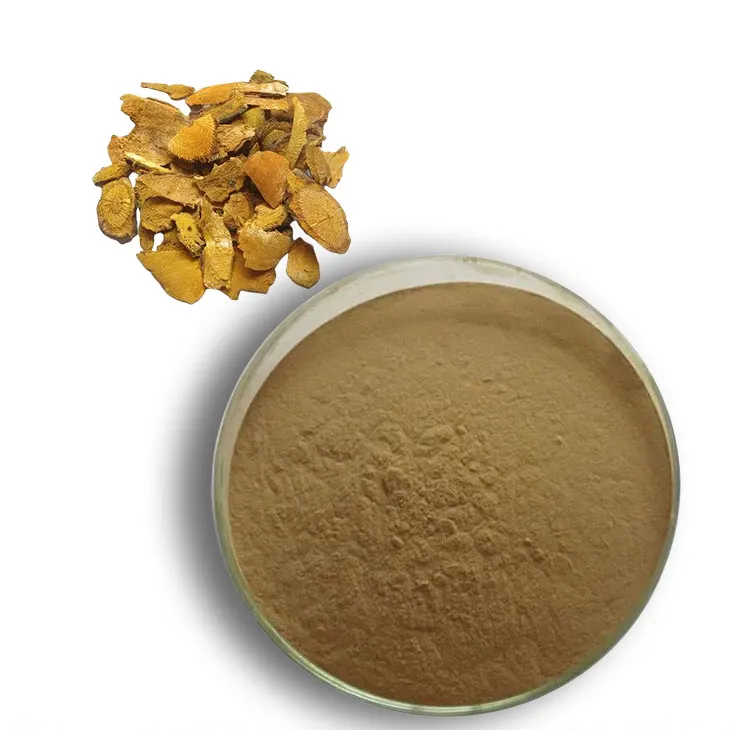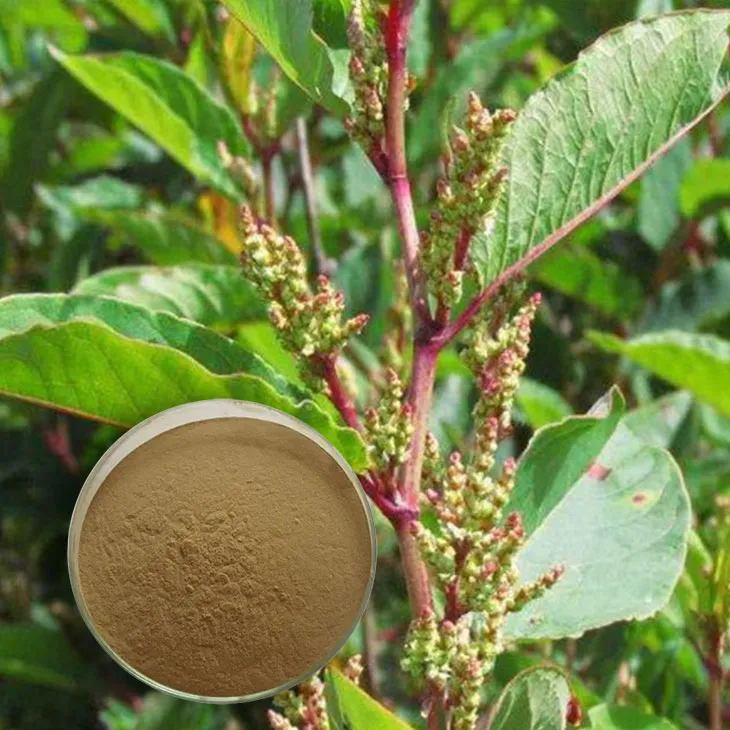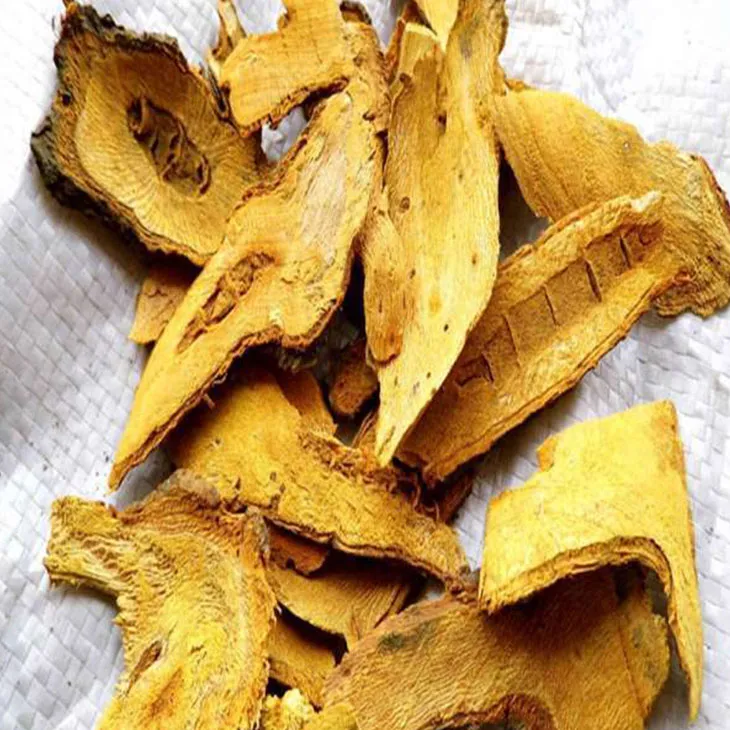- 0086-571-85302990
- sales@greenskybio.com
The Resveratrol Advantage: How Polygonum Cuspidatum Extract Can Enhance Your Health
2024-07-18

Introduction
In the realm of natural health supplements, the Polygonum Cuspidatum Extract has emerged as a remarkable contender. This extract is particularly notable for its rich content of resveratrol, a compound that offers a plethora of health benefits. Resveratrol is not a new discovery in the field of health research, but its potential is still being continuously explored and uncovered. The fact that it can be found in the Polygonum Cuspidatum makes this plant extract a natural wonder for those seeking to enhance their overall health.

Resveratrol's Antioxidant Power
One of the most significant advantages of resveratrol is its strong antioxidant capabilities. In our bodies, free radicals are constantly being produced as a by - product of normal metabolic processes. However, an excess of free radicals can lead to cellular damage, which is associated with a variety of health problems, including premature aging, certain cancers, and neurodegenerative diseases.
Resveratrol acts as a powerful defender against these free radicals. It neutralizes them before they can cause harm to our cells. This antioxidant activity is crucial for maintaining the integrity of our cells and tissues. For example, in the skin, it helps to prevent the breakdown of collagen, which is essential for maintaining a youthful and healthy appearance. Moreover, in the body's internal organs, it protects against oxidative stress, which can otherwise lead to inflammation and organ dysfunction.

Heart Health Benefits
Maintaining Healthy Blood Vessels
When it comes to heart health, resveratrol plays a vital role in maintaining healthy blood vessels. It helps to keep the endothelial cells that line the blood vessels in good condition. These cells are responsible for regulating blood flow, preventing blood clots, and maintaining the elasticity of the blood vessels. Resveratrol promotes the production of nitric oxide in these endothelial cells. Nitric oxide is a signaling molecule that relaxes the blood vessels, allowing for smoother blood flow. This is important in reducing the risk of cardiovascular diseases such as atherosclerosis, which is characterized by the hardening and narrowing of the arteries.
Regulating Blood Pressure
Another aspect of heart health that resveratrol impacts is blood pressure regulation. High blood pressure is a major risk factor for heart disease and stroke. Resveratrol has been shown to have a beneficial effect on blood pressure. It does this by several mechanisms. Firstly, as mentioned above, it promotes the relaxation of blood vessels through the production of nitric oxide. This reduces the resistance in the blood vessels, which in turn helps to lower blood pressure. Secondly, it may also have an impact on the renin - angiotensin - aldosterone system (RAAS), which is an important hormonal system involved in blood pressure regulation. By modulating this system, resveratrol can contribute to maintaining normal blood pressure levels.

Benefits for Diabetes Management
For individuals concerned about diabetes, resveratrol offers some promising benefits. One of the key aspects is its potential to improve insulin sensitivity. In diabetes, especially type 2 diabetes, the body's cells become resistant to the effects of insulin. Insulin is a hormone that is responsible for regulating blood sugar levels by facilitating the uptake of glucose into cells. When cells are insulin - resistant, glucose builds up in the bloodstream, leading to high blood sugar levels.
Resveratrol may help to reverse this insulin resistance. It has been shown to activate certain signaling pathways in cells that enhance the action of insulin. This means that cells become more responsive to insulin, allowing for better glucose uptake and regulation of blood sugar levels. Additionally, resveratrol may also have an impact on pancreatic beta cells, which are the cells in the pancreas that produce insulin. By protecting these cells from damage and promoting their function, resveratrol can contribute to better diabetes management.
Boosting the Immune System
The immune system is our body's defense against infections and diseases. A strong immune system is essential for maintaining good health. Resveratrol has the potential to boost the immune system in several ways.
- It has anti - inflammatory properties. Chronic inflammation can suppress the immune system. By reducing inflammation, resveratrol helps to create an environment in which the immune system can function optimally.
- Resveratrol may also enhance the activity of immune cells such as macrophages and lymphocytes. Macrophages are responsible for engulfing and destroying foreign invaders such as bacteria and viruses. Lymphocytes play a key role in the adaptive immune response, including the production of antibodies. By enhancing the function of these cells, resveratrol can strengthen the body's immune defenses.
Improving Overall Well - being
Beyond its specific effects on antioxidant activity, heart health, diabetes management, and the immune system, resveratrol from Polygonum Cuspidatum Extract can also contribute to an overall improvement in well - being.
- It may enhance energy levels. By improving cellular function through its antioxidant and other beneficial effects, resveratrol can help the body to produce and utilize energy more efficiently.
- There is also some evidence to suggest that it can have a positive impact on mental health. It may help to reduce stress and anxiety, perhaps through its anti - inflammatory and antioxidant effects on the brain. This can lead to an improved mood and a greater sense of well - being.
- Resveratrol may also play a role in improving sleep quality. By reducing inflammation and oxidative stress in the body, it can create a more favorable internal environment for a good night's sleep.
Conclusion
In conclusion, the Polygonum Cuspidatum Extract, with its rich content of resveratrol, is indeed a valuable addition to a healthy lifestyle. Its antioxidant capabilities, benefits for heart health, potential in diabetes management, ability to boost the immune system, and contribution to overall well - being make it a compound worthy of further study and consideration. However, it is important to note that while the potential benefits are significant, more research is still needed to fully understand the optimal dosage, long - term effects, and potential interactions with other medications or supplements. As with any health - related matter, it is always advisable to consult with a healthcare professional before starting any new supplement regimen.
FAQ:
What is the main component in Polygonum Cuspidatum extract that is beneficial to health?
The main beneficial component in Polygonum Cuspidatum extract is resveratrol. Resveratrol is responsible for many of the health - enhancing properties of the extract, such as its antioxidant capabilities and positive effects on various aspects of health including heart health, diabetes management, and immune system boosting.
How does resveratrol in Polygonum Cuspidatum extract help with heart health?
Resveratrol in Polygonum Cuspidatum extract helps with heart health by maintaining healthy blood vessels and blood pressure. It has antioxidant properties that can prevent oxidative damage to the blood vessels, which in turn can reduce the risk of heart - related problems.
Can Polygonum Cuspidatum extract really improve insulin sensitivity?
There is evidence to suggest that resveratrol, which is rich in Polygonum Cuspidatum extract, may improve insulin sensitivity. However, more research is needed to fully understand the mechanisms and the extent of its effectiveness in diabetes management.
How does the extract boost the immune system?
The exact mechanisms through which Polygonum Cuspidatum extract boosts the immune system are not fully understood. However, resveratrol's antioxidant and anti - inflammatory properties may play a role. By combating free radicals and reducing inflammation, it may help the immune system function more effectively.
Is it safe to consume Polygonum Cuspidatum extract?
While Polygonum Cuspidatum extract has potential health benefits, it should be consumed with caution. Some people may be allergic to it. Also, it is important to ensure that the extract is sourced from a reliable and pure source. Before starting any new supplement, it is advisable to consult a healthcare provider.
Related literature
- Resveratrol: A Review of its Anti - Diabetic Properties"
- "The Role of Resveratrol in Heart Health: A Comprehensive Review"
- "Antioxidant Properties of Resveratrol and Their Impact on Immune Function"
- ▶ Hesperidin
- ▶ Citrus Bioflavonoids
- ▶ Plant Extract
- ▶ lycopene
- ▶ Diosmin
- ▶ Grape seed extract
- ▶ Sea buckthorn Juice Powder
- ▶ Fruit Juice Powder
- ▶ Hops Extract
- ▶ Artichoke Extract
- ▶ Mushroom extract
- ▶ Astaxanthin
- ▶ Green Tea Extract
- ▶ Curcumin
- ▶ Horse Chestnut Extract
- ▶ Other Product
- ▶ Boswellia Serrata Extract
- ▶ Resveratrol
- ▶ Marigold Extract
- ▶ Grape Leaf Extract
- ▶ New Product
- ▶ Aminolevulinic acid
- ▶ Cranberry Extract
- ▶ Red Yeast Rice
- ▶ Red Wine Extract
-
Grape Leaf Extract
2024-07-18
-
Sophora Japonica Flower Extract
2024-07-18
-
Rose Hip Extract
2024-07-18
-
Coconut Water Powder
2024-07-18
-
Curcumin Extract
2024-07-18
-
Marigold Extract
2024-07-18
-
Astaxanthin
2024-07-18
-
Tongkat Ali Extract Powder
2024-07-18
-
Echinacea Extract
2024-07-18
-
Green Tea Extract
2024-07-18





















